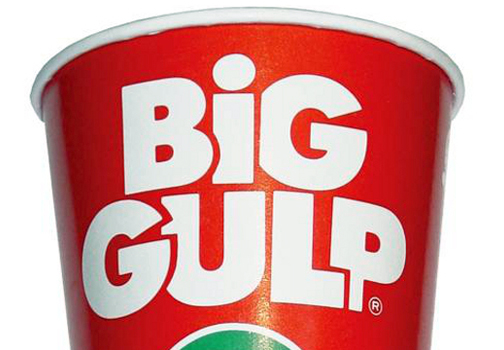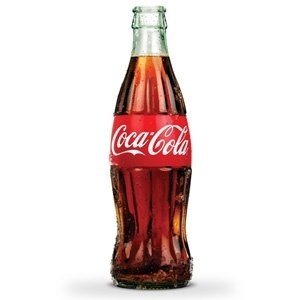
Food Politics
by Marion Nestle
Jan 25 2013
Soda industry exploits NAACP and Hispanic Federation in soda cap lawsuit
Who knew that Wednesday’s New York State Supreme Court hearing on the lawsuit filed against New York City’s cap on sodas larger than 16 ounces would turn out to be a debate about race relations?
Let’s be clear. This lawsuit is about only one thing and one thing only: to protect the profits of Big Soda—mainly, Coca-Cola and PepsiCo. The lawsuit is funded by their trade association, the American Beverage Association (ABA), at what must be astronomical expense.
But to shift attention away from profit as a motive, the ABA enlisted two organizations of underrepresented groups—the NAACP and Hispanic Federation—to file an amicus brief on behalf of the soda companies. The brief argues that the soda cap discriminates against citizens and small-business owners in African-American and Hispanic communities. But it neglects to mention that both “friends of the court” received funding from soda companies.
The financial arrangements between Big Soda and such groups demand further examination. Fortunately, we have Michael Grynbaum at the New York Times, who explains that:
The obesity rate for African-Americans in New York City is higher than the city average, and city health department officials say minority neighborhoods would be among the key beneficiaries of a rule that would limit the sale of super-size, calorie-laden beverages.
But the N.A.A.C.P. has close ties to big soft-drink companies, particularly Coca-Cola, whose longtime Atlanta law firm, King & Spalding, wrote the amicus brief filed by the civil rights group in support of a lawsuit aimed at blocking Mr. Bloomberg’s soda rules…Coca-Cola has also donated tens of thousands of dollars to a health education program, Project HELP, developed by the National Association for the Advancement of Colored People. The brief describes that program, but not the financial contributions of the beverage company. The brief was filed jointly with another organization, the Hispanic Federation, whose former president, Lillian Rodríguez López, recently took a job at Coca-Cola.
Soda companies have a long history of targeting their marketing efforts to Blacks and Hispanics, as shown in at least one book (and described in one of its reviews).
Last fall, the East Bay Express exposed how the soda industry exploited race issues and used them to divide and conquer in defeating the Measure N soda tax initiative in Richmond, California.
The No on Measure N workers’ paychecks were signed by political consultant Barnes Mosher Whitehurst Lauter & Partners (BMWL), which had been hired by the American Beverage Association….By the time that Big Soda had arrived, the issue of race was already a factor in the campaign. Some opponents of the tax had alleged that it was racist, arguing that it would unfairly harm low-income residents in the city. And the No on Measure N campaign…nurtured that sentiment. Indeed, there is evidence that the beverage association helped keep race at the forefront of the campaign as part of a strategy that exploited Richmond’s existing tensions.
…the beverage industry discovered a winning formula in Richmond last year that it might be able to replicate elsewhere…And if that were to happen, it could drive a wedge through traditional Democratic constituencies in many communities, with blacks and Latinos opposing their longtime political allies — progressives and environmentalists — just like they did in Richmond.
Is a cap on soda sizes discriminatory? Quite the contrary.
Public health measures like this are about removing health disparities and giving everyone equal access to good nutrition and health. This makes public health—and initiatives like the soda cap—democratic, inclusive, and anything but elitist.
But I can’t think of anything more elitist, less inclusive, and more undemocratic than suing New York City over the soda cap.
In funding this suit, the soda industry has made it clear that it will go to any lengths at any cost to protect its profitability—even to the point of dragging along with it the very groups that would most benefit from the initiative.
If the American Beverage Association and its corporate members really cared about Black and Hispanic groups, it would stop target marketing, stop marketing to children, and stop pretending that sugar-sweetened beverages are an important part of active, healthy lifestyles. It certainly would stop wasting these groups’ time and credibility on anti-public health lawsuits.
Friday, January 25, 2013
Big Soda Exploits Race in New York Just Like It Did in Richmond
Eat Bay Express Wendi Jonassen — Fri, Jan 25, 2013 at 11:00 AM
New York. Richmond. Same players. Same strategy. Same manipulation. As we reported this week, the beverage industry exploited the issue of race during its campaign to defeat a soda tax measure last fall in Richmond. And now the New York Daily News is reporting that Coca-Cola and PepsiCo are exploiting race tensions in New York’s soda battle. The NAACP and the Hispanic Federation recently partnered with the beverage industry in a lawsuit to try to block implementation of Mayor Michael Bloomberg’s ban on the sale of large soda drinks in New York City.

The NAACP and the Hispanic Federation say they’re trying to protect low-income residents and small business owners, while accepting funds from Coca-Cola and PepsiCo. The arrangement is similar to what we reported happened in Richmond last fall during the battle over the proposed soda tax. The beverage industry funded an influential Richmond group — the Black American Political Action Committee — which then helped defeat the soda tax measure.
In New York, Coca Cola’s law firm, King and Spalding, drafted most of the arguments that were presented in the state Supreme Court in Manhattan on Wednesday on behalf of the NAACP and the Hispanic Federation, according to the New York Daily News.
And the strategy appears to be spreading. Big business — soda in this case — pays money to groups that represent minorities, like the NAACP or BAPAC, which then argue publicly that efforts to limit soda consumption will hurt low-income residents and small businesses — even though soda is not a necessity and many experts agree that the overconsumption of sugar via soda is a leading factor in the country’s obesity epidemic.
The real irony in both New York and Richmond is that a limit on oversized sodas or a tax on sugar-sweetened beverages are both efforts designed to help the black and Latino populations, both of which have high rates of obesity and diabetes.
|

